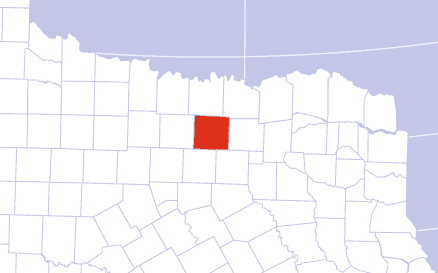Denton County Cannabis – Is It Legal & Where To Buy 2026
- Texas Cannabis
- Denton County Cannabis
Is Cannabis Cultivation Legal in Denton County?
Yes, but only licensed cannabis dispensaries are allowed to cultivate it. Low- tetrahydrocannabinol (THC) cannabis cultivation is allowed only for prescribed medical purposes by the Texas Department of Public Safety. According to the Texas Occupations Code Sec. 169.001, the definition of “low-THC cannabis” is that there is only one percent, or a lower amount, of THC by weight in any part of the plant or its oil, resin, derivative, or salt.
Cannabis cultivation is regulated by the Texas Health and Safety Code Chapter 487, the Compassionate Use Program (CUP) that was passed in 2015. Section 487.201 of the Code does not allow any county, municipality, or any other political subdivision to prohibit cannabis cultivation.
Licensed dispensaries are required to have the technological and technical skills needed for the cultivation of low-THC cannabis plants. They are accountable for preventing unlawful access to their plants or their by-products.
Is Cannabis Manufacturing Legal in Denton County?
Yes, but only for licensed cannabis dispensaries. Chapter 487 of the Texas Health and Safety Code regulates the processing and manufacturing of low-THC cannabis for medical purposes. Counties, municipalities, and any other political subdivisions cannot prohibit cannabis cultivation..
All types of medical cannabis manufactured by licensed cannabis dispensaries must have not more than one percent of THC by weight. Licensed dispensaries are accountable for ensuring the security of their raw materials, by-products, and finished products.
Is Cannabis Retail Legal in Denton County?
Only three dispensing organizations are licensed to sell medical marijuana in Texas. In Denton County, the three licensed medical cannabis dispensaries do not have physical locations. Patients can have their medical cannabis prescriptions filled by these cannabis dispensaries online and by delivery.
The licensed medical cannabis dispensaries can only sell to patients registered in the online Compassionate Use Registry of Texas (CURT). Each sale and the amount of low-THC cannabis dispensed are duly recorded in the CURT.
According to the Texas Occupations Code Ch.169.001, smokable forms of marijuana are not allowed even for medical use. All other types of low-THC medical marijuana are allowed, including edibles.
Medical marijuana dispensaries must not be less than 1,000 feet from a daycare center, public school, or private school that has been there before them. Directors, managers, and employees must be registered in the CURT. They will be fingerprinted as part of a criminal history background check.
The Texas Health and Safety Code Sec. 487.201 does not allow any county, municipality, or any other political subdivision to prohibit low-THC cannabis dispensing for prescribed medical purposes.
Is Cannabis Delivery Legal in Denton County?
The three licensed medical marijuana dispensaries in Texas are allowed to deliver prescriptions to residences of patients in Denton county provided they are registered in the CURT.
How to Get Medical Marijuana Card in Denton County
Denton County and the state of Texas do not issue Medical Marijuana Cards. Patients must instead search for registered physicians under the state’s CUP. A patient can only have one registered physician as a prescriber. There is no age limit for patients who can be prescribed medical marijuana, but they must be permanent Texas residents.
The CUP allows the prescription of low-THC medical marijuana for those diagnosed with the following conditions:
- Seizure disorders
- Epilepsy
- Spasticity
- Multiple sclerosis
- Amyotrophic lateral sclerosis
- Cancer
- Autism
- Post-traumatic stress disorder
- Incurable neurodegenerative disease
After arriving at a diagnosis, the registered physician must provide the patient with an informed consent form to sign. The physician then enters the name of the patient and the prescription in the CURT online system. There is no fee for patient registration. This information will be accessible to law enforcement agencies.
At the dispensary, the patient must show an ID with their last name, birth date, and last five digits of their Social Security Number. If the patient is a minor and represented by a guardian, the physician will also enter the guardian’s name in the CURT. The guardian must also show their ID at the dispensary. Patients can also order online from licensed dispensaries.
How Has Cannabis Legalization Impacted the Economy of Denton County?
Texas generates licensing fees from medical marijuana dispensaries. There is a $7,356 application fee for any interested party. Upon approval, the license fee for a two-year period is $488,520 plus a registration fee of $530. After that, renewal every two years is $318,511 plus the same registration fee. There is, however, no sales tax on medical marijuana in Texas.
The Effects of Cannabis Legalization on Crime Rates in Denton County
Since the CUP began in 2015, the baseline for comparing crime rates is 2014. Data from the FBI shows that in Denton County, arrests for marijuana possession decreased from 71 in 2014 to 22 in 2020. The grand total of arrests for drug abuse decreased from 118 in 2014 to 77 in 2020. Arrests for marijuana sales remained the same at two for both years. Arrests for DUI, however, increased from 25 in 2014 to 42 in 2020.
Cities Dispensary
